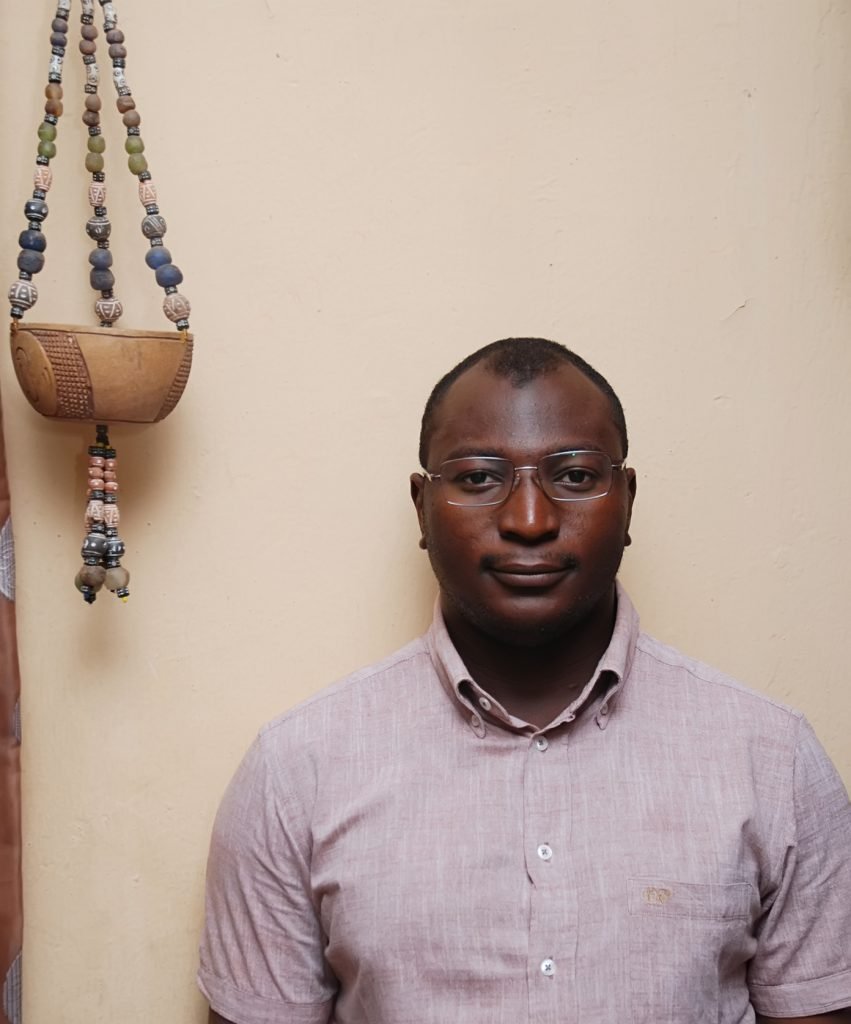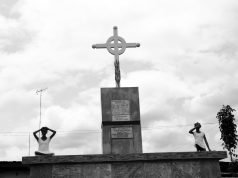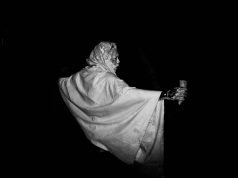Poet and Pilot, Umar Sidi is a self-effacing man. To get a conversation out of him is quite an arduous task. His easy smile suffices for almost every occasion. Behind that smile is a man with a gift of poetic fluency, a catalog of influences and one of the finest voices of his generation. Saraba Magazine recently published his poetry chapbook, The Poet of Sand, and we anticipate, with bated breaths, his first volume of poems from Paressia later this year. He takes time off flying naval helicopters to answer a few of my questions. – Dami Ajayi
On Poetry
I will start with a confession: I hate to theorize on poetry or any other creative endeavour. I am one of those who believe in the mystery and metaphysics of poetry. It is for this reason that I hate to address myself as a poet. I am more comfortable with the union of the creator and the created, the writer and the written, the poet and poetry. This unity protects my perception of what poetry is. When I began to take poetry seriously, I was a fanatic, a fundamentalist. I believed ardently that the core of poetry, or the source of poetry, a place where all artistic inspiration springs from, is situated somewhere, far in the heavens, a place not too dissimilar from Ben Okri’s Book of Life among the stars where all things are known. As I traversed more on the road to poetry I became an “agnostic”, my fanaticism waned; I began to accommodate the possibility of the core being present in the human heart. This metamorphosed into the dualistic belief that: the core or source of poetry is present in the stars, and is also present in the receiver (the poet).
To make poetry happen, poets must have the special ability to tune into the core within their hearts and receive signals from the core in the stars. But as we speak, I am not sure of anything. I am full of doubts. Is the core of poetry in the stars? Is it somewhere in the innermost core of the human heart? Or is it in both of these places? Or is it absent from either of these places. Also, I am not too satisfied with the idea of the poet merely receiving signals from the core. I am more comfortable with the idea of immersion, where the poet submerges himself/ herself in totality in the core wherever it may be. I imagine the core or source of poetry to be fluid. For me, gaining entrance to this core is usually facilitated by a spark, an ignition, it could be a ray of light or waves of beauty emanating from a page, or the fluttering of leaves, chirping of birds, majestic movement of clouds, the smile of a beautiful damsel, an act of genuine kindness or a glimpse of the mysterious curtain which is possible only when the doors of silence and solitude open up to one, or by having a sight of the bizarre, the ugly, the grotesque , the disproportionate, or the brazenly stupid. Once I gain access, I drink from the river which flows in the core, I then become ecstatic, light-feathered, luminous.. This experience or what seems to be a remnant of this experience I often try to record on the page or in memory. This is how a poem happens to me.

On Books
I once told a dear friend of mine that I am a drunken reader, I read to get high, to get uplifted. I am attracted to poetry that has the ability to propel me into the realms of wonder, doubt, enchantment and transcendence. I crave for nausea, hallucination, mesmerism, nonsense, and stupor. You see, I prostitute a lot; I am also attracted to poems that speak softly to the soul. I love poems that have the quality of deceptive simplicity. I love poems that alter my perception of reality. I love poems that open up new vistas of understanding or misunderstanding. I love poems that interrogate the existing order. I love poems that investigate the creative process, poems that reflect on poetry. I love poems that wander through the labyrinthine corridors of darkness, the hidden and the unknown.
On Poetics
I lean towards the epic tradition, the long unwinding narrative. I have written short poems before and I still do. I was quite sad when I was writing The Poet of Sand, and as such I was more interested in escaping my suffering by sustaining the experience, by remaining in that intoxicating, hallucinatory state. I was not really very conscious of length or duration of the poems.
As a helicopter pilot, I use ‘duty periods’ to gather raw materials; a view here, a sound there, which I process later. And again, flying is a very poetic profession. Imagine transiting through patches of clouds, or above a layer of thick clouds. Imagine controlling a machine which is able to move forward, upward and sideways at the same time. I relate these to the variables of vision, “multi-perspectivity,” and high motion which feature immensely in my poetry. Also, I relate high powered, adrenaline pumping maneuvers such as aerobatics and auto-rotative flight to mesmerism and ecstasy.
If I wasn’t writing poetry, I would probably be a member of a group of lunatics who at night would waylay poets and by day send them to death by the guillotine. Sounds cruel, doesn’t it? For me poetry goes beyond the written and the page. Poetry, I believe, is centered on the beautiful and doing the beautiful. It is, I suspect, founded on the invisible variables of silence, empathy, ecstasy and love, without which there will be no humanity. Poetry has a lot to do with the angelic. It is written in A Manual of the Sufi Path that an angel is not a spirit being endowed with beauty and enormous wings; an angel could be a butterfly, a ray of light, or a smile, provided that it could stir up something in the heart. This is what poetry does. It strikes the strings of the soul, it propels the soul back to its origin, to its default mode of nothingness, emptiness, openness and love. Ismail Bala, that celebrated poet, once said: “Poetry is love/Love is poetry/Spiritual love to the faithless.” So I ask: is life worth living without love, without poetry?
Download Umar Sidi’s chapbook, The Poet of Sand.

































Great words Exboy..
Comments are closed.